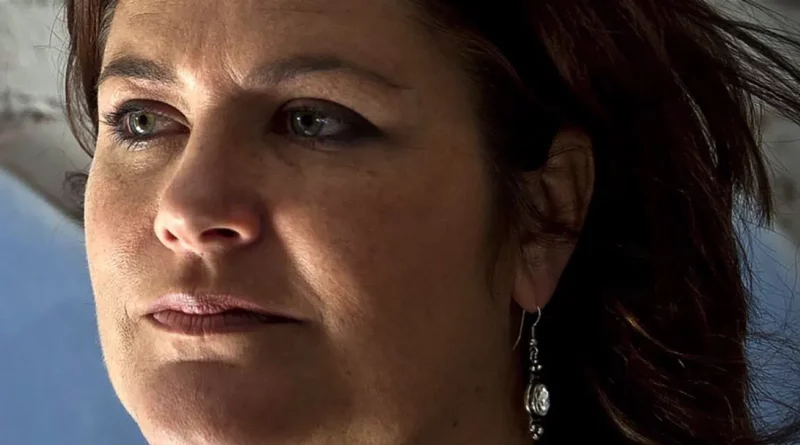Alison Botha Fights For Her Life After Being Brutally Stabbed and Nearly Decapitated in Port Elizabeth South Africa
On the evening of December 18, 1994, Port Elizabeth, South Africa, was alive with the quiet rhythm of summer. For most residents, it was a night like any other, but for twenty-seven-year-old Alison Botha, it would become the most harrowing and transformative experience of her life. That night marked an act of violence so brutal that it not only shook her community but also became one of the most shocking criminal cases in South African history.
Alison had spent a casual evening with friends before returning to her apartment. She was an ordinary young woman, vibrant and full of life, with no idea that fate was about to place her in a situation that would test her resilience, courage, and will to survive.
The Abduction
After parking her car near her apartment building, Alison noticed a man approaching her. The stranger, later identified as Frans du Toit, pulled a knife and forced her into the driver’s seat. Terrified but determined to stay calm, she complied with his instructions. Soon after, another man, Theuns Kruger, joined them. Together, the pair commandeered her car and drove Alison away from the safety of the city streets into the darkness on the outskirts of town.
The two men told her they needed the vehicle for a robbery. Alison, clinging to hope, believed she might be released unharmed once their scheme was complete. However, as the car veered into a secluded, sandy clearing near the South Campus of what is now Nelson Mandela University, it became chillingly clear that their intentions were far darker.
The Attack
In the deserted area, Alison was subjected to a prolonged and horrifying assault. She was raped by both men, who seemed determined not only to violate her but to erase any chance of her identifying them later. Their cruelty escalated to unimaginable violence. Using a knife, they stabbed Alison more than thirty times in her abdomen, causing severe internal injuries.
As if that weren’t enough, they then turned their attention to her throat. In a final, brutal act, they slashed her neck at least sixteen times, cutting so deeply that her head was nearly severed from her body. Believing no human could survive such injuries, they abandoned her in the sand, assuming she would bleed to death within minutes.
The Will to Survive
What followed was one of the most extraordinary survival stories ever recorded. Alison, left alone under the night sky, found herself drifting on the edge of consciousness. She later described the strange clarity that came to her in that moment. Rather than succumbing to panic, she focused on the smallest steps she could take to stay alive.
With her abdomen torn open and her throat savagely cut, Alison somehow mustered the strength to drag herself toward the distant road. She used one hand to hold her head, which felt as though it was barely attached to her body. Every movement sent waves of agony through her body, but the will to live outweighed the pain. She thought not of revenge or anger but of her family and the possibility of seeing another day.
Eventually, after what must have felt like an eternity, Alison reached a dirt road where, by extraordinary luck, a passing motorist spotted her. The man immediately rushed to her side, shocked by the extent of her injuries. His quick decision to get help ensured she was rushed to a nearby hospital before it was too late.
The Hospital and Medical Battle
When Alison arrived at the hospital, doctors were astounded that she was still alive. Her wounds were catastrophic. She had suffered massive blood loss, her intestines had been severely damaged, and her jugular vein was exposed. The medical team worked tirelessly to stabilize her, performing emergency surgery to repair the damage.
During her recovery, Alison became something of a phenomenon in the medical community. Her survival was considered a miracle of human endurance and medical skill. Despite the odds, she began to heal, both physically and emotionally, although the scars of the attack would remain forever.
Identification and Arrest
Alison’s strength did not end with survival. Incredibly, despite her injuries, she was able to provide police with detailed descriptions of her attackers. Her ability to recall their features and actions proved crucial. Police soon arrested both men, Frans du Toit and Theuns Kruger, who confessed to the crime.
Their confessions detailed the cold-blooded planning behind the attack. They had not only intended to rape her but also to kill her, ensuring no witness could implicate them. Their utter lack of remorse shocked the court and the public alike.
The Trial
The trial of du Toit and Kruger was a high-profile case in South Africa, drawing widespread media attention. The brutality of the crime stunned the public. When Alison testified, her composure and courage deeply moved the court.
Both men were found guilty of kidnapping, rape, and attempted murder. They were sentenced to life imprisonment, a decision that reflected the severity of their crimes. The sentencing also underscored the broader issue of gender-based violence in South Africa, which was and remains a deeply troubling social problem.
Alison’s Journey After the Attack
Survival was only the beginning of Alison’s story. She emerged from the ordeal with a determination not to be defined by victimhood but by resilience. Her courage inspired countless people, not just in South Africa but around the world.
Alison went on to share her story in public forums, becoming a motivational speaker. Her talks often centered on themes of attitude, belief, and choice—the very principles she credited with helping her endure the impossible. Audiences were captivated not only by her story but also by her unwavering positivity.
She collaborated with journalist Marianne Thamm to publish I Have Life, a book that chronicled the events of that night and her journey afterward. The book became an international bestseller and cemented Alison’s status as an icon of survival.
In 2016, her story was adapted into a documentary film titled Alison. Directed by Uga Carlini, the film combined re-enactments with interviews, capturing both the horror of the crime and the extraordinary resilience that followed.
The Legacy of Her Case
The attempted murder of Alison Botha became more than a crime story. It symbolized the strength of the human spirit. Her survival demonstrated how, even in the darkest moments, hope and determination can prevail.
Her case also shed light on broader issues, including violence against women in South Africa. By speaking out, Alison gave a voice to countless survivors who were silenced by fear or trauma. Her willingness to share her pain publicly encouraged others to confront their own struggles.
Her attackers remained in prison for decades, and in early 2025, the South African government canceled their parole after public outrage. This decision was celebrated by Alison’s supporters, who believed that justice meant they should remain behind bars for life.
An Ongoing Inspiration
Today, Alison Botha continues to be remembered not for the violence she endured but for the example she set in the aftermath. She is seen as a symbol of resilience, empowerment, and hope. Her life demonstrates that even in the face of near-death, a person can choose to rise, to live fully, and to inspire others.
Her story is shared in classrooms, self-help seminars, and survivor networks. For many, Alison’s journey represents the ultimate victory of light over darkness, of life over death.
Discover more from City Towner
Subscribe to get the latest posts sent to your email.




